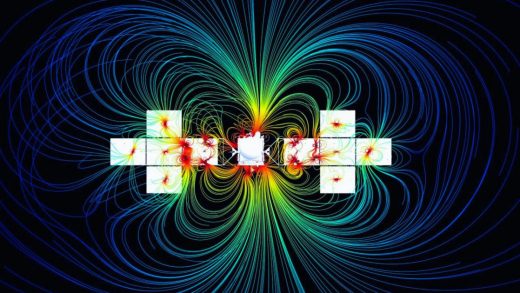NASA to invest $105 million in small business technologies in US

NASA, which has been supporting America’s entrepreneurs to develop technologies from ideas to commercial readiness since long in history, is to invest in small business technologies again. Giving continuity to the same, NASA’s Small Business Innovation Research (SBIR) program has declared 140 new Phase II awards to 127 US small businesses that will help them move their innovations to market.
For the awards to these small businesses, which are located across 34 states and Washington, DC, the total amount is $105 million. NASA says its small business program is dedicated to finding the most useful technologies for the agency and the commercial marketplace, and sourcing those innovations from a diverse group of entrepreneurs with different backgrounds and perspectives. The program has chosen 33 women-owned, minority-owned, and veteran-owned small businesse companies for Phase II funding.
According to NASA, the awardees all received initial SBIR Phase I contracts in 2020 to demonstrate the merits of their innovations and show how they could contribute to NASA’s efforts in human exploration, space technology, science, and aeronautics. The Phase II awards will provide them each with up to $750,000 to advance their technologies toward potential commercialization. The companies will spend up to two years developing, demonstrating, and delivering their proposed projects.
One of the selected companies is InnoSys Inc., a woman-owned small business in Salt Lake City, Utah. The company has developed a concept for a camera that can operate in extremely high temperatures, perhaps even on Venus where surface temperature can reach 900 degrees Fahrenheit. Its innovation replaces glass envelopes in conventional imaging tubes with other materials, such as quartz or sapphire, that can withstand harsh environments. Beyond space mission applications, the company wants to create cameras for imaging fires or high-temperature furnaces up close, and for inspecting nuclear reactor cores.
Similarly, NASA has also selected California-based Micro Cooling Concepts this year for a Phase II contract. The company has worked with NASA’s SBIR and Small Business Technology Transfer (STTR) program since 2004 on various thermal management innovations. In this phase, the company is to build a lightweight, compact heat exchanger with possible electrified aircraft propulsion applications. Using the development and lessons learned during Phase I, Micro Cooling Concepts will advance its clean energy technology to potentially support new aircraft configurations for NASA, the military, and the commercial sector.
In addition, Tietronix Software Inc., a minority-owned small business in Houston, was selected to mature a virtual medical ‘expert’ that incorporates artificial intelligence and augmented reality. In working through its concept during Phase I, Tietronix Software had recognized the need to seamlessly integrate medical resources, knowledge, training, procedural guidance, and diagnostic support. Experts say the system could provide astronauts with medical autonomy during extended missions and benefit the military or other organizations in places where medical professionals have limited availability.
NASA says it aims to help small businesses like InnoSys focus on commercialization. The program offers additional funding opportunities for small businesses if their Phase II work proves successful, helping them find customers outside the agency.
NASA officials say the Phase II contract period is an exciting time, as small businesses put their ideas into practice and develop prototypes attractive to NASA and private investors.
Earlier to this, NASA had announced $45 million in Phase I awards to another group of small businesses in March 2021.
NASA’s SBIR/STTR program is part of STMD and managed by NASA’s Ames Research Center in California’s Silicon Valley.
Source: NASA



Can someone recommend Fetish Stockings and Leggings? Thanks xxx
Does anyone know what happened to Dime Piece LA celebrity streetwear brand? I seem to be unable to proceed to the checkout on Dimepiecela site. I’ve read in Harpers Bazaar that they were acquired by a UK-based hedge fund in excess of $50 million. I’ve just bought the Friends Slim Phone Case from Ebay and absolutely love it xox
There are actually loads of details like that to take into consideration. That is a great point to carry up. I provide the ideas above as general inspiration but clearly there are questions like the one you deliver up the place a very powerful thing might be working in sincere good faith. I don?t know if greatest practices have emerged around issues like that, but I’m sure that your job is clearly identified as a good game. Each girls and boys feel the impact of just a moment抯 pleasure, for the remainder of their lives.